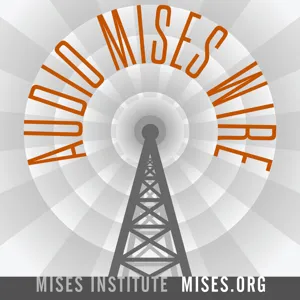Podcast Summary
Argentine economics crisis and Malay's role: Javier Malay's deep understanding of economics, unconventional style, and ability to capture public attention contributed to his political success during Argentina's economic crisis
Javier Malay's presidency in Argentina can be attributed to his deep understanding of economics and the public's growing interest in economic solutions to the country's long-standing crisis. Malay, a libertarian with a Rothbardian approach, stood out from the crowd with his successful books, articles, and even a comedy theatrical play on economic affairs. He knew how to capture the attention of audiences and television channels, making him a sought-after guest on talk shows since 2015. Despite his unconventional style, Malay's magnetic personality and expertise in economics made him a favorite among viewers. While other libertarian economists were gaining prominence, none could match Malay's impact on the public. Understanding the market and addressing the economic needs of the people played a significant role in Malay's political success.
Effective communication and education: Effective communication and education are vital for spreading libertarian ideas. Using simple analogies, logical explanations, and referencing influential thinkers can capture public attention and inspire interest in libertarian theories, particularly among young people. Education and scholarship are essential components of the libertarian movement.
Effective communication and education are crucial for spreading libertarian ideas. Malay's ability to explain complex libertarian philosophy and economic principles in a simple and logical way captured the public's attention and sparked interest. His use of relatable analogies and frequent references to influential thinkers helped to spread awareness of libertarian theories. Young people, particularly, were drawn to his message of hope for a different future. Malay's dedication to carrying and sharing books further emphasized the importance of education and scholarship in the libertarian movement. Overall, his impactful presence on night talk shows and social media served as a catalyst for the conversion and activation of genuine followers.
Libertarian ideas resurgence: Social media enabled a decentralized network of passionate libertarians to create, spread content, and counteract political attacks, leading to a resurgence of libertarian ideas despite censorship and government prioritization of special interests
Social media played a pivotal role in the resurgence of libertarian ideas, which had been demonized, by enabling a decentralized network of passionate followers to create and spread content. This community, with exceptional communication and research skills, was able to counteract political attacks and discredit opponents, despite facing censorship on other platforms. The political class, which had neglected the people, found themselves outmaneuvered in the virtual world. The government, which claimed to represent the working class, instead prioritized the interests of those benefiting from the state, leading to a growing disconnect between the political class and the people. Today, the political class continues to use various issues, from race to climate change, to advance their agendas, often through media funded by public funds. The persistence and resilience of libertarian activists offer a new beginning for the world, with the potential for a comeback of ideas that underpin civilization.
21st century libertarianism: The 21st century is characterized by a shift towards libertarianism, emphasizing individual freedom, limited government, and free markets, following the 20th century's focus on socialism and government intervention.
The 21st century could be seen as the century of libertarianism, following the 20th century being labeled as the century of socialism. This perspective is based on the ideas of Austrian economist Ludwig von Mises. The 20th century saw a significant rise in socialist and communist ideologies, leading to widespread government intervention and control in many areas of society and the economy. In contrast, the 21st century has seen a resurgence of libertarian thought, emphasizing individual freedom, limited government, and free markets. This shift is not only evident in political and economic spheres but also in social and cultural trends. As we move forward, it will be interesting to see how this trend unfolds and what it means for our future. For more insights on this topic and related ideas, visit Mises.org.

